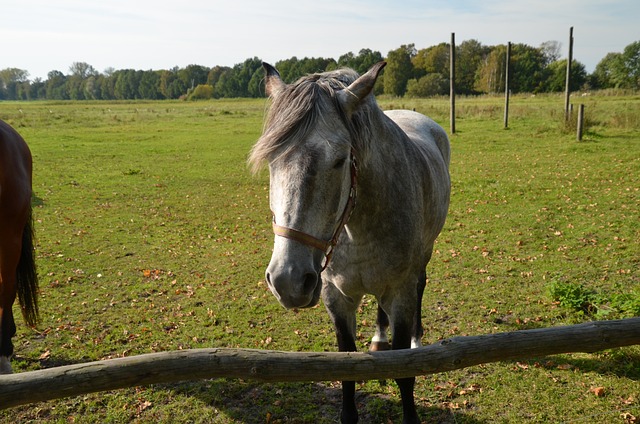The Essential Guide to Fence Companies for Farm and Property Owners
Fence companies play a crucial role in agricultural and property management, offering solutions that enhance security, define boundaries, and protect livestock. Whether you're a farmer looking to secure your fields or a property owner aiming to improve your land's aesthetics, understanding the services provided by fence companies is essential. This comprehensive guide will explore the various aspects of fence installation, maintenance, and the benefits of professional fencing services for agriculture and property management.

-
Pasture division: Fence companies can help create rotational grazing systems by installing temporary or permanent fencing to divide large pastures into smaller paddocks.
-
Perimeter fencing: Secure the boundaries of your farm with sturdy fencing that not only keeps livestock in but also helps deter trespassers and predators.
-
Fence repair and maintenance: Many companies offer services to repair damaged fences and provide regular maintenance to ensure longevity and effectiveness.
-
Gate installation: Custom gates for vehicle and livestock access, including automatic and manual options.
How do fence companies contribute to agricultural efficiency?
Professional fence companies can significantly improve agricultural efficiency in several ways:
-
Optimal land use: By properly dividing pastures and fields, fence companies help farmers implement more effective grazing and crop rotation strategies.
-
Livestock management: Well-designed fencing systems make it easier to control and move livestock, reducing labor costs and improving overall herd management.
-
Soil and water conservation: Strategic fencing can help protect waterways from erosion and prevent overgrazing in sensitive areas.
-
Increased property value: Quality fencing not only improves the functionality of a farm but can also increase its overall market value.
-
Time-saving: Professional installation ensures that fencing is done correctly the first time, saving farmers valuable time and resources.
What types of fencing materials are best for livestock containment?
Fence companies offer various materials suitable for livestock containment, each with its own advantages:
-
Barbed wire: A traditional and cost-effective option for cattle and other large livestock.
-
Woven wire: Ideal for smaller animals like sheep and goats, providing excellent containment without the risk of injury.
-
High-tensile wire: A durable and low-maintenance option that can be electrified for added security.
-
Electric fencing: Versatile and effective for most types of livestock, offering psychological and physical barriers.
-
Wood fencing: While more expensive, wooden fences offer aesthetic appeal and are suitable for horse paddocks and high-visibility areas.
-
Synthetic materials: Some companies offer innovative plastic or composite fencing options that resist weathering and require minimal maintenance.
How do fence companies ensure property security and privacy?
For property owners looking to enhance security and privacy, fence companies provide several solutions:
-
Privacy fences: Tall wooden or vinyl fences that block sightlines and create a secluded outdoor space.
-
Security fencing: Chain-link or metal fencing with additional features like barbed wire or spike tops for enhanced protection.
-
Decorative fencing: Ornamental iron or aluminum fences that combine aesthetics with security.
-
Perimeter detection systems: Some fence companies offer integration of alarm systems or motion sensors with fencing for advanced security.
-
Access control: Installation of automated gates and entry systems to regulate access to the property.
What factors influence the cost of professional fencing services?
The cost of fencing services can vary widely based on several factors. Here’s a breakdown of the main elements that influence pricing:
-
Materials: The type and quality of fencing materials chosen significantly impact the overall cost.
-
Length and height: The total linear footage and height of the fence directly affect material and labor costs.
-
Terrain: Difficult or uneven terrain may require additional preparation and labor.
-
Access: Properties with limited access may incur higher costs due to the challenges of transporting materials and equipment.
-
Additional features: Gates, corner bracing, and specialized components can add to the total cost.
| Fencing Type | Average Cost per Linear Foot | Typical Lifespan |
|---|---|---|
| Barbed Wire | $1.50 - $2.50 | 20-30 years |
| Woven Wire | $3.00 - $5.00 | 20-30 years |
| High-Tensile | $2.00 - $4.00 | 25-40 years |
| Wood Post & Rail | $10.00 - $20.00 | 15-20 years |
| Chain-Link | $8.00 - $15.00 | 20-30 years |
Prices, rates, or cost estimates mentioned in this article are based on the latest available information but may change over time. Independent research is advised before making financial decisions.
How can property owners maintain their fences after installation?
Proper maintenance is crucial for extending the life of your fence and ensuring its continued effectiveness. Here are some tips that fence companies often recommend:
-
Regular inspections: Check for damage, loose components, or signs of wear at least twice a year.
-
Prompt repairs: Address any issues immediately to prevent further damage or security breaches.
-
Cleaning: Remove debris and vegetation growth that can compromise the fence’s integrity.
-
Painting or staining: For wooden fences, apply protective coatings every few years to guard against weathering.
-
Tightening and adjusting: Regularly check and adjust tension on wire fences to maintain their effectiveness.
-
Professional maintenance: Consider scheduling periodic maintenance visits from your fence company for expert care and repairs.
By understanding the services offered by fence companies and the importance of proper fencing in agriculture and property management, landowners can make informed decisions to protect their investments and enhance their operations. Whether for livestock containment, crop protection, or property security, professional fencing solutions provide long-lasting benefits that contribute to the success and value of farms and properties alike.






